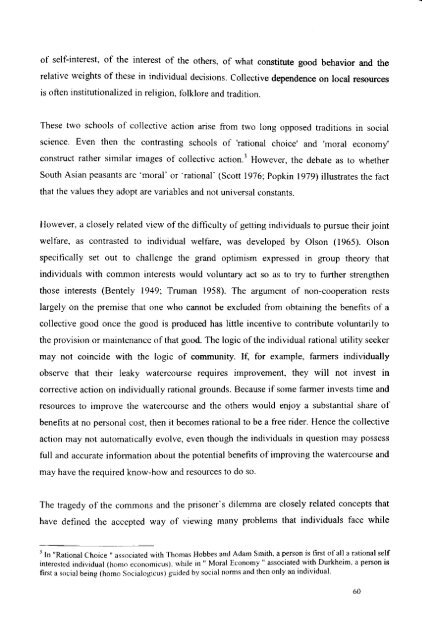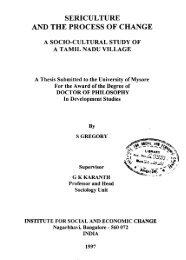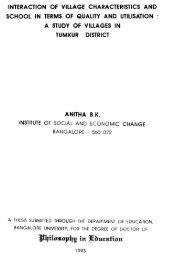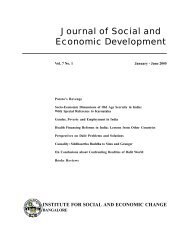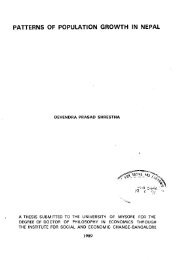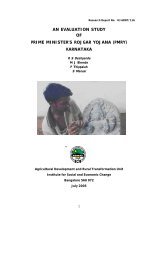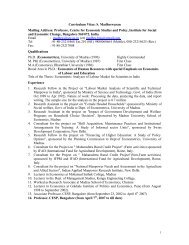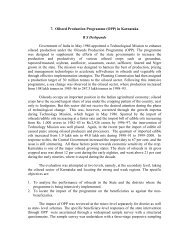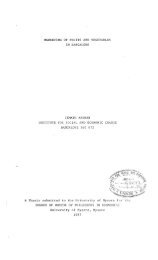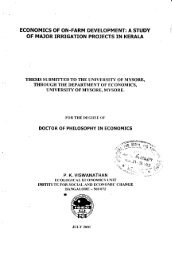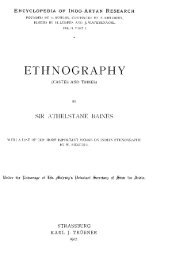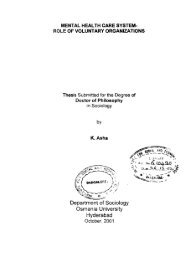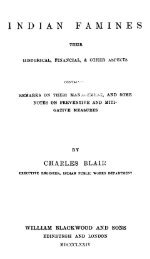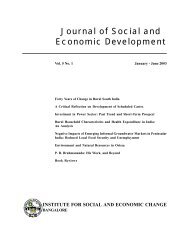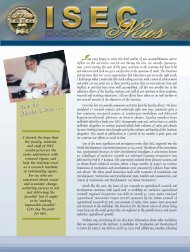Water Users Association and Irrigation Management - Institute for ...
Water Users Association and Irrigation Management - Institute for ...
Water Users Association and Irrigation Management - Institute for ...
Create successful ePaper yourself
Turn your PDF publications into a flip-book with our unique Google optimized e-Paper software.
of self-interest, of the interest of the others, of what constitute good behavior <strong>and</strong> the<br />
relative weights of these in individual decisions. Collective dependence on local resources<br />
is often institutionalized in religion, folklore <strong>and</strong> tradition.<br />
These two schools of collective action arise from two long opposed traditions in social<br />
science. Even then the contrasting schools of 'rational choice' <strong>and</strong> 'moral economy'<br />
construct rather similar images of collective action. 3 However, the debate as to whether<br />
South Asian peasants arc 'moral" or 'rational" (Scott 1976; Popkin 1979) illustrates the fact<br />
that the values they adopt are variables <strong>and</strong> not universal constants.<br />
However, a closely related view of the diftlculty of getting individuals to pursue their joint<br />
welfare, as contrasted to individual welfare, was developed by Olson (1965). Olson<br />
specifically set out to challenge the gr<strong>and</strong> optimism expressed in group theory that<br />
individuals with common interests would voluntary act so as to try to further strengthen<br />
those interests (Bentely 1949; Truman 1958). The argument of non-cooperation rests<br />
largely on the premise that one who cannot be excluded from obtaining the benefits of a<br />
collective good once the good is produced has little incentive to contribute voluntarily to<br />
the provision or maintenance of that good. The logic of the individual rational utility seeker<br />
may not coincide with the logic of community. If, <strong>for</strong> example, farmers individually<br />
observe that their leaky watercourse requires improvement, they will not invest in<br />
corrective action on individually rational grounds. Because if some farmer invests time <strong>and</strong><br />
resources to improve the watercourse <strong>and</strong> the others would enjoy a substantial share of<br />
benefits at no personal cost, then it becomes rational to be a free rider. Hence the collective<br />
action may not automatically evolve, even though the individuals in question may possess<br />
full <strong>and</strong> accurate in<strong>for</strong>mation about the potential benefits of improving the watercourse <strong>and</strong><br />
may have the required know-how <strong>and</strong> resources to do so.<br />
The tragedy of the commons <strong>and</strong> the prisoner's dilemma are closely related concepts that<br />
have defined the accepted way of viewing many problems that individuals face while<br />
3 In "Rational Choice" associated with Thomas Hobbes <strong>and</strong> Adam Smith. a person is first of all a rational self<br />
interested individual (homo economic us). while in " Moral Economy" associated with Durkheim, a person is<br />
first a social being (homo Socialogicus) guided by social norms <strong>and</strong> then only an individual.<br />
60


